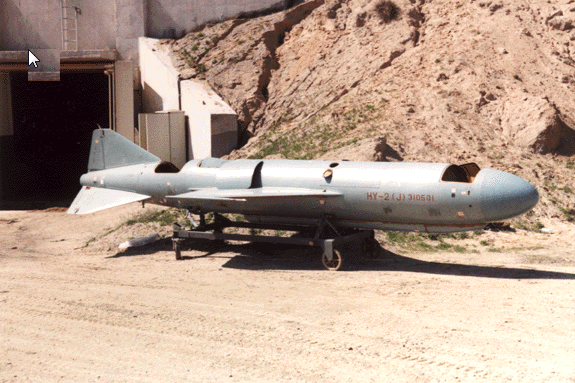
LONDON TIMES STORY OUTLINING NUKE ATTACK ON IRAN CITED
AS ISRAELI DECEPTION TO MANIPULATE U.S. STOCK MARKET
By Gordon Duff STAFF WRITER/Senior Editor
The London Times reported today that Saudi Arabia has given permission for Israel to fly over their territory to attack unspecified “nuclear facilities” in Iran. Mention of specific Saudi actions including deactivating their air defense systems to allow Israel use of their airspace was directly referenced by the Times in their story by Hugh Tomlinson. However, not only is such a possibility not a possibility, the story itself is designed to destabilize world markets.
Iran is capable of closing the Straits of Hormuz and stopping all oil shipments from, not only the Persian Gulf states, including Kuwait and Iran but Saudi Arabia itself. At the first sight of an Israeli plane, every tanker and oil facility in the Gulf would be destroyed and the Saudi capital in ruins from Iranian missiles.
The closing of the Straits alone would crash the world’s stock markets instantly throwing the world into an immediate depression. Oil would go over $250 a barrel overnight and gas prices in the US would hit $10 per gallon. This is not speculation.

Iran’s military capability has been focused entirely on closing the Straits and cutting off much of the world’s oil supply. Thousands of Chinese Silkworm missiles are at the ready, set into the islands of the Straits seized by Iran years ago or hidden along the coastline or on mobile launchers. In fact, the US Navy is would have to immediately withdraw from the region.
Every defense specialist in the world knows all of this. The United Arab Emirates sits across the Straits from Iran and stares into this mass of missiles, torpedo boats and submarines. They are funding a massive missile defense system and have even considered spending billions to construct a canal bypassing the narrow straits. Iranian troops have been dug into islands adjacent to the Straits for decades. When talking about the Straits of Hormuz, the term “tight as a tick” comes to mind. “Duck in a barrel” is another analogy with us being the ducks.
The game isn’t to start a war, knowing full well that America would be required to defend Saudi Arabia though there are no agreements to defend Israel, especially if they are the aggressor. With over $2 trillion dollars pumped from the US economy by Israeli-American companies like Goldman Sachs during the Bush sponsored “pump and dump,” the “banksters” weren’t satisfied. They now want to pick America’s bones.
Any attack on Iran that involved Saudi Arabia in any way would bring an automatic response from Pakistan. Without their military efforts, the US would be forced to withdraw from Afghanistan in weeks. Even with their help, and increased force levels, America’s presence is unsustainable as the Karzai government has already collapsed. Nobody is admitting it yet but Karzai and his US backers rule nothing and control nothing, even worse than when Bush left office.
The real players in the Middle East are Turkey, Iran and Pakistan. Two of these nations are major US allies. The population of the three nations exceeds that of the US and their combined armies number, with reserves at two million, over double that of the United States. Were the three to join together, Afghanistan and Iraq would be forced, out of survival to join in, creating a contiguous state, a nuclear state, capable of taking Saudi Arabia in days and doing so without any US resistance. After all, these are American allies and Saudi Arabia would be, technically, an aggressor nation. Though mutual defense pacts do not include Iran, a history of resentment against Saudi-Israeli collusion and the current chill between Israel and Turkey would build this polyglot coalition state almost overnight.
In the long run, such a country would be the real strategic partner the US has always desired, with a single nuclear arsenal under Pakistani control and Iranian issues eliminated as they would be the junior power in a coalition with decades of ties to the US. If any of this seems difficult to grasp, position papers outlining this exact situation have been around for years.
Given the chance, Israel would join this group of states. Those familiar with private “back channel” diplomatic initiatives know that this has is considered. Turkey, Iraq, Iran, Afghanistan and Pakistan all maintain a covert level of cordial relations with Israel, relations poisoned by the Gaza crisis.
Israel’s aggressive stance toward apartheid expansionism, fueled by the hubris supplied by American hegemony in the region is only one of the considerations needed in evaluating the dynamic in the region. The humiliation Turkey suffered, despite the fact Turkey’s powerful military has always worked closely with Israel, threatens to destabilize their civilian government and add to Islamic militancy there.
Iraq is going through a rough period after recent elections. They are expect to ask the US to keep troops in place in significant numbers well past the agreed upon date of withdrawal.
Iran, a country whose civil government is extremely unpopular with its own people, maintains stability through police state tactics rivaling those of the Shah’s Savak and punishes its own population by maintaining status as a rogue state, a virtual pariah nation, as a way of clamping down on dissent.
Afghanistan is in total collapse. Along with the Taliban, a number of additional divides with the nation have occurred and the new national army and police force are total failures. An informal defacto government is now ruling increasing areas of the country and may be able to build stability if certified by the royal families. President Karzai is trying to work closely with Pakistan, a major policy change for him, out of a combination of necessity and panic. However, Karzai has burned too many bridges to be able to bring cordial relations between Pakistan and Afghanistan, nations with a history of rivalry and some acrimony.
Pakistan may be the key to the puzzle. Pakistan’s unsteady democracy has been ineffective but current military leadership in Pakistan is highly competent, very pro-US and moderate. The primary problems are Pakistan’s economy, nearing total collapse and the instability of terrorism that has pushed Pakistan to the edge. Pakistan’s desire is to underwrite economic growth but has no oil resources for such as task. Without the ability to overcome internal corruption and address the root causes of extremism in the tribal areas along the border with Afghanistan, Pakistan faces destabilization. Membership in a coalition state would address some of these problems. Occupation of Saudi Arabia under an “Islamic Protectorate” necessitated by Israeli incursions into Saudi airspace would solve all of Pakistan’s problems.
The media can be a powerful thing. When a story, such as the one in the London Times, could jolt markets or push nations to irational acts, a poor understanding of regional conditions and history could have quite another effect, one entirely unexpected.

Gordon Duff posted articles on VT from 2008 to 2022. He is a Marine combat veteran of the Vietnam War. A disabled veteran, he worked on veterans and POW issues for decades.
Gordon is an accredited diplomat and is generally accepted as one of the top global intelligence specialists. He manages the world’s largest private intelligence organization and regularly consults with governments challenged by security issues.
Duff has traveled extensively, is published around the world, and is a regular guest on TV and radio in more than “several” countries. He is also a trained chef, wine enthusiast, avid motorcyclist, and gunsmith specializing in historical weapons and restoration. Business experience and interests are in energy and defense technology.
ATTENTION READERS
We See The World From All Sides and Want YOU To Be Fully InformedIn fact, intentional disinformation is a disgraceful scourge in media today. So to assuage any possible errant incorrect information posted herein, we strongly encourage you to seek corroboration from other non-VT sources before forming an educated opinion.
About VT - Policies & Disclosures - Comment Policy



